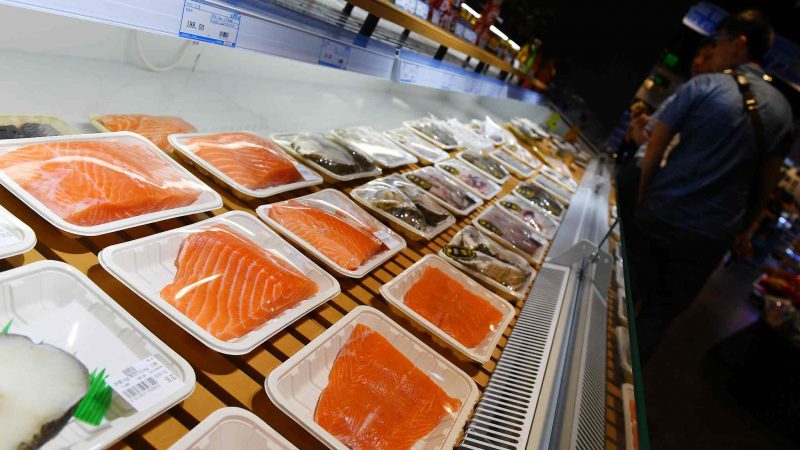“Our salmon is safe” Canada tells China
China grapples with a new COVID-19 outbreak traced to the chopping board used by a seller of imported salmon at a Beijing market
By Fabian Dawson
SeaWestNews
Canada’s seafood farmers and fishers have a message for China.
“Our salmon is safe,” they said as China grapples with a new COVID-19 outbreak traced to the chopping board used by a seller of imported salmon at a Beijing market.
The Canadian seafood industry is expecting to take a hit as Chinese health experts are warning Beijing residents not to eat raw salmon or purchase imported seafood for the time being, despite virologists saying that COVID-19 cannot be transmitted from fish to humans.
Canada’s fish and seafood exports to China were valued at $1.17 billion in 2018. Salmon accounted for $60 million worth of the seafood exported to China.
China takes up around 80 per cent of B.C. wild seafood exports. The country is also a primary market for west coast salmon farmers who export about $541 million worth of Atlantic salmon annually.
“It’s the last thing we need,” said Christina Burridge, executive director for the BC Seafood Alliance, which represents more than 90% of the commercially harvested seafood in B.C.
“I don’t expect this situation to last long as it is an issue of cross-contamination not COVID-19 being in fish…it reinforces the need for hygiene,” Burridge told SeaWestNews.com
“Our season has barely begun and we will be monitoring the situation,” she said.
Tim Kennedy, president & CEO of the Canadian Aquaculture Industry Alliance (CAIA) said seafood continues to be among the healthiest foods consumers can choose.
“Our seafood farmers adhere to strict seafood safety policies, regulations and inspection standards, he said.
“There is no known scientific possibility of fish carrying the coronavirus. Recent scientific studies, including one by University College London and the Asian Fisheries Society, conclude that fish can neither be infected with, nor spread, coronavirus.
“Since the outset of the pandemic, seafood farmers across Canada have implemented new and strict procedures and social distancing to keep employees safe and to prevent infection,” added Kennedy.
Norway is expected to take the biggest hit from the new outbreak of coronavirus cases in Beijing. Intrafish reported that Norway exported 3,141 metric tons of salmon to China in April, up by 97 percent year-on-year, according to data from the Norwegian Seafood Council. The country held 45 percent market share of fresh salmon to China from January to April 2020.
Meanwhile reports out of Beijing said salmon has been taken off the shelves in supermarkets and grocery delivery platforms across major Chinese cities.
Zeng Guang, a senior expert with the National Health Commission, said in an interview with state media on Sunday that “we have yet to find out whether human beings transmitted the virus to salmon, or salmon contracted the virus first.” He warned Beijing residents not to eat raw salmon or purchase imported seafood for the time being.
Lin Li, chief scientist of a team that monitors aquatic disease and control in Guangdong Province, told Global Times it’s not possible for live salmon to be contaminated with the virus given it lives in the ocean, neither can frozen salmon be a source of the novel coronavirus which can only exist in active cells.
It may be possible for salmon to be contaminated by virus-contaminated water during processing, transportation or packaging, Lin said.
“As the probe into the cause of the latest outbreak is underway, salmon business around the world will be affected,” Cui He, president of the China Aquatic Products Processing and Marketing Alliance (CAPPMA), told the Global Times Sunday.
“The impact of the Xinfadi outbreak will expand from wholesale markets to supermarkets and restaurants, so the whole food chain may feel the pain,” Cui said, although it’s too early to gauge the impact.
